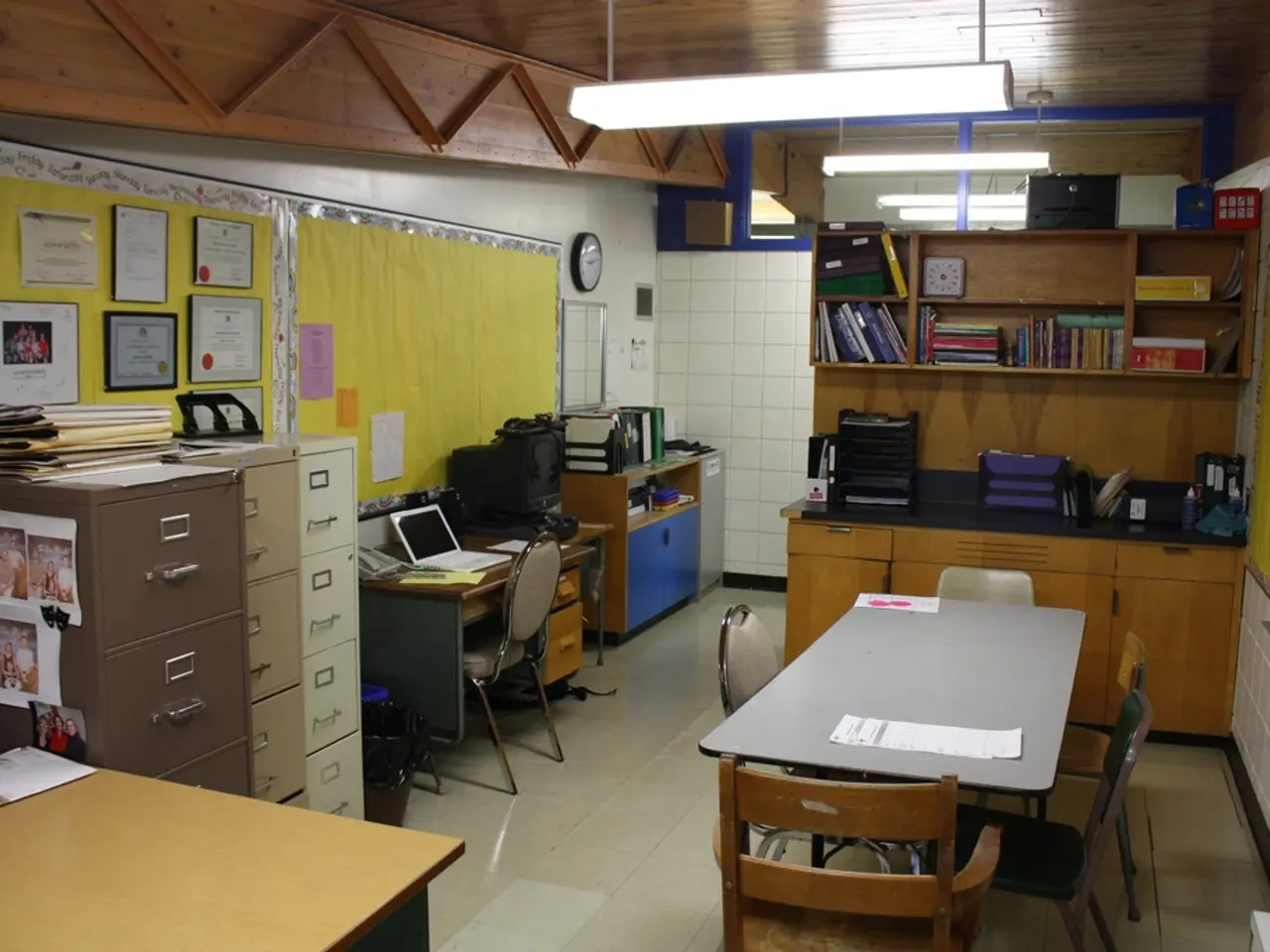School-Related Occupational Therapy Suggestions for Improved Structure
School-based Occupational Therapists (OTs) are gearing up for the busy academic year ahead, armed with a toolkit of organizational strategies to enhance both student well-being and their own efficiency.
Having a designated home base for essentials like keys, wallet, and phone prevents wasted time searching. A bag on wheels with multiple pockets is ideal for a school-based OT to carry their OT tools and materials. A tidy workspace supports focus and is essential for school-based OT.
School OTs maintain organization and reduce stress during the school year by implementing structured routines, using dedicated planning and communication tools, and applying strategies that support both their students and their professional workflow.
Key methods include the use of digital and printable planners. OTs use specialized digital therapy planners to organize schedules, track sessions, and coordinate with teachers. These planners often include editable forms for scheduling, teacher requests, classroom information, and parent communication logs, which streamline time management and reduce scheduling confusion.
OTs help develop consistent daily and nightly routines for students that promote responsibility and reduce anxiety related to school demands. For example, bedtime preparation with laying out clothes and planning lunches reduces morning stress.
By improving children’s organizational skills through checklists, visual planners, and other tools, school OTs help reduce the stress and frustration students experience, especially those with executive functioning challenges.
Sensory regulation and movement breaks are also essential strategies. They teach calming strategies (like deep breathing or stretching) and recommend brain break movement bursts during the day to maintain student focus and reduce fatigue, helping students stay calm and organized.
School OTs collaborate closely with teachers, parents, and other staff by providing consultation, training, and coaching on sensory modifications, assistive technologies, and classroom adaptations to improve overall school functioning.
Morning routines set the tone for the day and help manage time more effectively. Building a well-planned routine supports focus on students and meaningful work. Weekly brain dumps clear mental clutter by moving tasks onto paper, reducing the risk of forgetting important details.
Making time to get to know the school's staff, such as the principal, secretary, custodian, and teacher's assistants, can be beneficial. Planning clothes, meals, and therapy materials the night before prevents rushing and gives more time to connect with students.
Observing students in their natural environment and making adaptations and accommodations can happen with the tasks the student is working on at that moment. Using a physical calendar or paper planner helps keep schedules, meetings, and deadlines organized. A portable three hole punch is useful for filing away and organizing sheets of paper while on-the-go.
An accordion-style file folder is useful for organizing different types of writing paper and therapist-parent communication forms. A binder is useful for keeping all documentation sheets, schedules, calendars, note pages, and treatment planning templates in one place.
The Build Your Own Therapy Planner is designed to help school-based OTs start the school year organized and confident. The planner includes a one-page master planning sheet, monthly calendars, to-do lists, IEP-at-a-glance pages, evaluation and re-evaluation trackers, and monthly consultation logs. The planner is designed with flexibility in mind, allowing school-based OTs to choose exactly the pages that work for their caseload.
Keeping extra pens, post-it notes, and highlighters in your bag is helpful. Organization is crucial for school-based OT as it helps manage workload and prevents burnout. With these strategies in place, school-based OTs are well-prepared to face the challenges of the upcoming academic year.
School-based OTs strive for personal growth and learning by using specialized digital therapy planners for time management, helping to reduce scheduling confusion and improve their workflow. Their efforts in education and self-development also extend to their students, as they teach calming strategies and promote organizational skills for personal growth.
OTs' focus on organization within their own lives, such as using a physical calendar or accordion-style file folder, reflects their commitment to improving their efficiency and school functioning, thus contributing to their own development and the overall success of the academic year.




